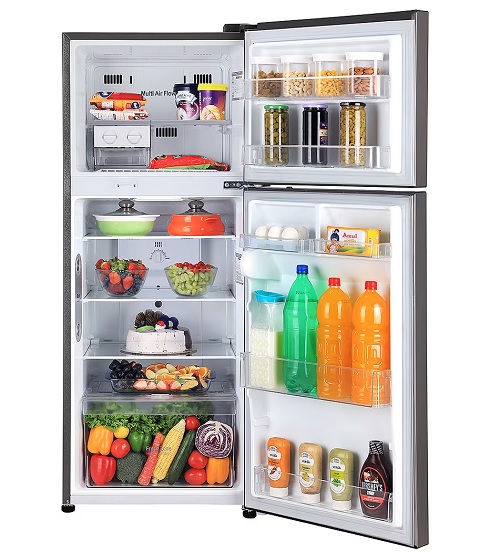Is your LG Refrigerator Freezer not freezing? Don’t let your groceries go to waste. Explore our comprehensive troubleshooting guide today and get your freezer back in action. Click now to restore the chill in your fridge!
“Revive Your Freezer’s Chill!”
LG Refrigerator Freezer Not Freezing Troubleshooting Guide:

LG Refrigerator Freezer Not Freezing Troubleshooting Guide
A malfunctioning freezer in your LG refrigerator can be a major inconvenience, potentially leading to spoiled food and expensive repairs. If you’ve noticed that your LG refrigerator’s freezer isn’t freezing properly, don’t fret – this comprehensive guide will help you identify the problems, understand the possible damaged parts, and provide step-by-step troubleshooting solutions.
Additionally, we’ll offer maintenance tips to keep your LG refrigerator in optimal condition.
Section 1: Common Problems and Symptoms
When your LG refrigerator’s freezer isn’t freezing as it should, there can be a variety of issues. Understanding the symptoms is the first step in solving the problem:
1.1 Ice Cream Softening
One of the earliest signs of trouble is when your ice cream begins to soften, or your ice cubes don’t form properly.
1.2 Food Spoilage
If you notice food in the freezer isn’t staying frozen or becomes freezer-burned quickly, it’s a clear indicator of a problem.
1.3 Frost Build-Up
Excessive frost or ice accumulation inside the freezer can obstruct the cooling process.
1.4 Unusual Noises
Unusual sounds like humming or clicking may suggest a problem with the compressor or other components.
Section 2: Possible Damaged Parts
Understanding the potential parts that could be causing the issue is vital. Here are some common components that might be damaged:
2.1 Evaporator Fan
The evaporator fan circulates cold air throughout the freezer. If it’s not working correctly, it can lead to uneven cooling.
2.2 Defrost Timer
A malfunctioning defrost timer may cause excessive frost to build up inside the freezer, reducing its cooling efficiency.
2.3 Compressor
The compressor is responsible for compressing refrigerant gas, and any issues with it can result in poor cooling.
2.4 Thermostat
A faulty thermostat might not signal the compressor to turn on when needed, leading to inconsistent cooling.
You May Need These Parts:
Section 3: Step-by-Step Troubleshooting Guide
Let’s now walk through a systematic troubleshooting process to help you identify and resolve the issue:
3.1 Check the Thermostat
- Ensure the thermostat is set to the correct temperature.
- Listen for a click when adjusting the thermostat; this indicates it’s working.
3.2 Examine the Evaporator Fan
- Open the freezer and listen for the fan. If it’s not running, it may need replacement.
- Clean any obstructions around the fan that could be affecting its operation.
3.3 Inspect the Defrost Timer
- Locate the defrost timer and manually advance it to see if the compressor starts running.
- If the compressor doesn’t start, the timer might be faulty and needs replacement.
3.4 Evaluate the Compressor
- Listen for unusual noises from the compressor. If it’s clicking or humming excessively, it may need servicing.
- Check the start relay, capacitor, and overload protector for any issues.
3.5 Check for Frost Build-Up
- If excessive frost is present, perform a manual defrost by unplugging the refrigerator and allowing it to thaw.
- Once defrosted, inspect the defrost heater, thermostat, and sensors for any damage.
Section 4: Maintenance Tips
Preventive maintenance can extend the life of your LG refrigerator and reduce the chances of freezer problems. Here are some essential maintenance tips:
4.1 Clean Condenser Coils
Regularly vacuum or brush the condenser coils located at the back or underneath the fridge. Dirty coils can hinder cooling efficiency.
4.2 Organize the Freezer
Properly organize the freezer to ensure adequate air circulation. Avoid over-packing, which can obstruct airflow.
4.3 Keep Door Seals Clean
Clean the door gaskets with warm, soapy water to maintain an airtight seal and prevent cold air leakage.
4.4 Monitor Temperature
Invest in a refrigerator thermometer to ensure the freezer maintains the desired temperature.
4.5 Periodic Defrosting
If your freezer is frost-free, you won’t need to manually defrost it. However, for older models, manual defrosting can prevent ice buildup.
Conclusion
A malfunctioning LG refrigerator freezer not freezing can be a headache, but with the right troubleshooting steps and maintenance practices, you can identify and resolve the issue. Regular maintenance and timely repairs can extend the life of your refrigerator, ensuring your frozen items stay fresh and your appliance functions optimally.
By following this guide, you can address the issue efficiently and enjoy the benefits of a fully functioning freezer. You can view more refrigerator troubleshooting guides here.

